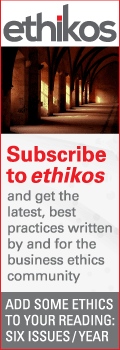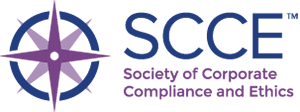|
Examining ethics and compliance issues in business since 1987
The challenge of harmonizing research ethics standards
|
By Grace Karram Stephenson and Emmanuelle Fick for University World News
At universities in Canada, as in many other countries, professors must have their research plan approved by the research ethics board or REB at their institution before they can launch their study. This process ensures that participants are not exposed to physical or psychological harm.
Interviews, surveys, focus groups or medical interventions, all methods that involve human participants, must receive REB approval, and for good reason. We have distanced ourselves from the days of recruiting vulnerable members of society and testing new discoveries on them. Read more |
How business schools are teaching students about workplace harassment
|
By Katie Johnston for The Boston Globe
As the #MeToo movement continues to reveal how ingrained sexual harassment is in corporate culture, business schools have started taking steps to teach future leaders how to deal with, and eradicate, such behavior. At Stanford Graduate School of Business, an ethics course recently looked into how to create a workplace environment where people are comfortable reporting sexual misconduct. Harassment at Uber is being examined in business school classrooms at Georgetown and Vanderbilt. Carnegie Mellon’s Tepper School of Business is developing virtual-reality training that will allow students to practice intervening when they witness harassment. Read more |
VW CEO urges corporate culture change
|
By Christoph Rauwald for Bloomberg
Volkswagen AG Chief Executive Officer Herbert Diess pledged to step up integrity and compliance efforts as part of the German manufacturer’s deepest overhaul since the diesel-emissions scandal came to light in 2015.
“Volkswagen has to become more honest, more open, and more truthful,” Diess said Thursday, addressing shareholders for the first time in his new role at the company’s annual general meeting in Berlin. Read more |
Why take ethics?
|
By Avery Rogers for The Grind/Stanford Daily
This quarter, I enrolled in two ethics classes: one on effective altruism and the other about ethical questions “on the edge,” particularly those pertaining to technological advances and modern social problems. I had decided during winter quarter that I wanted to minor in ethics in society, simply because the classes sounded interesting. While I got a “practical” education through my economics major, I would enjoy debating 25 units worth of puzzling ethical questions.
In the first four weeks of classes, though, my ethics classes have offered much more than entertaining debate. In effective altruism, we have interrogated our charitable giving, career choices and the morality of having a child. Read more |
|


|
The most interesting business ethics, culture and leadership articles delivered right to your email every week! Browse selected articles for inspiration, tips and great ideas on how to implement and maintain a healthy business culture. Stay on top of new insights, how-tos, and interviews from around the world—all from the comfort of your desk. Subscribe now.
ethikos is a publication of the Society of Corporate Compliance and Ethics
|









Research will continue to remain a very crucial and essential aspect of our lives and activities as humans since our ability to survive and thrive depends hugely on our knowledge in our external and our internal environments of which we have very little or less understanding or knowledge about . It is very important to cultivate and inculcate the habit of research into our traditions and our behavior as humans both formally and informally through the act of critical thinking , questioning and inquisition as I personally do. I personally will be very happy if very vital data or informations about our existence, survival interactivity are made readily available to those who are eager to know through researching and questioning to encourage the habit
Comments are closed.